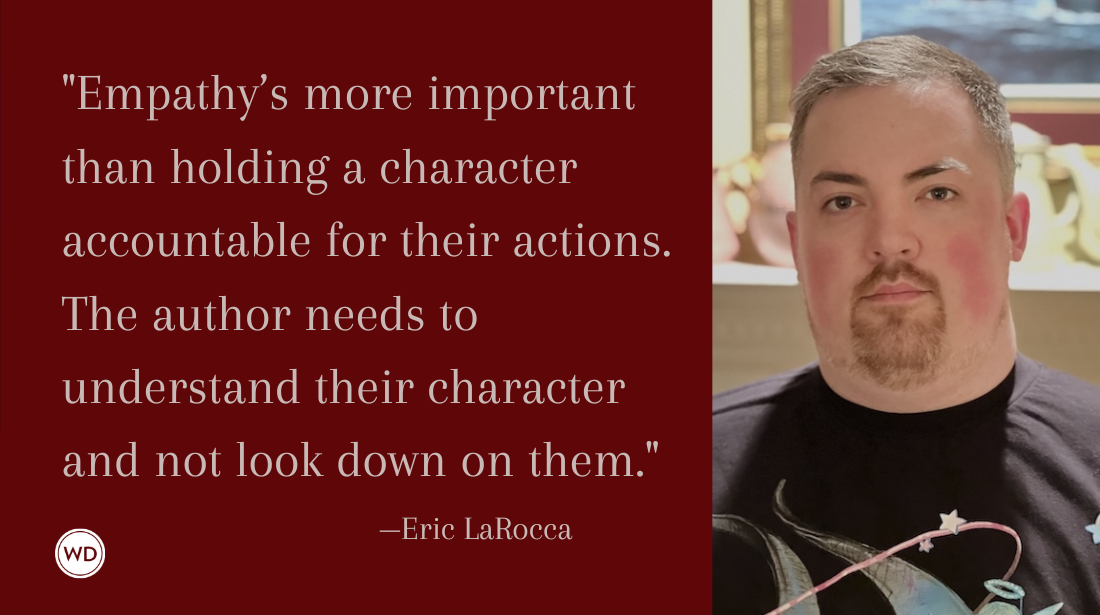My Characters, My Patients: How Knowing Your Characters’ Health Helps You Write Their Stories
Author Karen Winn’s medical background offered her a deepened sense of empathy for the characters she wrote. Here, she discusses how knowing your characters’ health helps to write their stories.
When I first began writing my debut novel, Our Little World, I didn’t set out to inflict health problems onto my characters. But having worked as a registered nurse for a number of years, as well as a nurse practitioner, medical assessments were once a routine part of my own little world. When I took my patients’ medical histories—akin to sketching a character, if you will—I asked them their birthdays, their food preferences, and religions, whether they lived alone, and even the number of floors in their homes (a safety/mobility issue). I inquired about previous surgeries and diagnoses, and current prescription and over-the-counter medications. I asked them many, many more personal questions than that, and if they were a new admission to the hospital, I also assessed their entire body, noting any irregularities or causes for concern.
So, perhaps unsurprisingly, diseases often work their way into my fiction writing. To me, sickness and life (not sickness and health) go hand-in-hand; illness is always brimming or belongs to a not-so-distant past. Sometimes there are hints of health issues: faded scars, wigs, a limp; other times, the wounds are not readily seen. One thing is certain: Patients are always “more,” meaning more complex than their present moment. They are holistic beings; sometimes this “more” lies in their social dynamics. Indeed, illness—particularly a chronic one—can shape an individual, but it often affects the entire family as well. When we nurses gave report to one another at the change of shift, we always shared our patients’ entire past medical and social histories, because we knew that at any moment, a piece of it could become relevant.
IndieBound | Bookshop | Amazon
[WD uses affiliate links.]
As I grew to know my characters in Our Little World—as they materialized and came to life—they, too, became holistic beings. So, they, too, came with medical baggage. In Our Little World, Bee, my protagonist, becomes deeply affected by the disappearance of a neighborhood girl, Sally, who goes missing one summer day at the local lake. Bee also harbors a guilty secret: She is hiding a possible piece of evidence from the crime scene. Stress and guilt culminate in Bee developing a mental disorder, a ritual she must perform that grants her temporary internal release but comes at a cost to her own appearance. The physical manifestations of this affliction only further compound Bee’s shame and heighten her feelings of insecurity, particularly when she is pitted against her beautiful sister, Audrina.
But Audrina, to whom everything comes seemingly easily, will also develop a disease, an autoimmune one that is serious and chronic in nature. She will rely on Bee to help with the challenging management of it, and this will unite the two sisters—until it drives them apart.
Bee and Audrina’s afflictions reflect the reality of life: both the randomness of illness, and also the way tragedy can unearth anxieties that people process in different and sometimes destructive manners. Audrina’s disease illustrates how an entire family can become ensnared in the grips and management of a chronic illness, and it serves to create a vulnerability in her otherwise untouchable character. The two sisters are multilayered, their medical journeys part and parcel of their personal ones.
But just as my nursing background led me to feature illness in my novel, my training also instilled in me a sense of responsibility and concern for my characters, a desire to ensure their experiences were authentic. I relied on my extensive nursing knowledge and also combed through medical journals to determine the appropriate treatment available at that time. My characters’ medical journeys needed to be both historically accurate, given the 1980s setting, and medically accurate. I felt incredible empathy for them and aimed to render their physical and emotional struggles as fully and truthfully as possible.
My characters had become my patients, guided by my care.
Karen Winn received her MFA from Fairleigh Dickinson University. She also holds a doctoral degree in nursing. Born and raised in New Jersey, Karen now lives in Boston with her husband and two children. Our Little World is her first novel.
Visit her website, karenlwinn.com, and find her on Instagram (@kbookwriter), Twitter (@kbookwriter), and Facebook (@kbookwriter).








